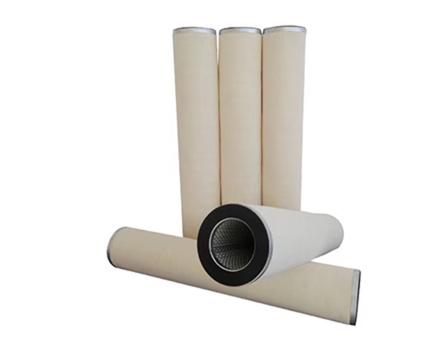 Tel:
+8615930870079
Tel:
+8615930870079
Nov . 15, 2024 01:02 Back to list
cartridge filter air
Understanding Cartridge Filter Air Systems A Comprehensive Guide
Cartridge filter air systems are essential components in numerous industrial and commercial applications, tasked with maintaining the purity of the air we breathe and protecting sensitive equipment from harmful particles. By utilizing a filter medium housed within a cylindrical cartridge, these systems effectively capture contaminants, ensuring that the air delivered is clean and safe.
What is a Cartridge Filter Air System?
At its core, a cartridge filter air system operates by drawing air through a filter medium that is designed to capture airborne particles such as dust, pollen, smoke, and other pollutants. The cartridge itself is typically made of various materials, including synthetic fibers, fiberglass, or woven textiles, which are selected based on their filtration efficiency and durability. When air passes through the filter, these materials trap contaminants, allowing only clean air to exit the system.
Key Advantages of Cartridge Filter Air Systems
1. High Efficiency One of the main benefits of cartridge filters is their high filtration efficiency. These systems are designed to capture a wide range of particle sizes, ensuring that even the smallest pollutants are effectively filtered out. This makes them ideal for environments where air quality is paramount, such as laboratories, hospitals, and manufacturing facilities.
2. Space-Saving Design Unlike traditional bag filters, cartridge filters have a compact design that requires less space for installation. This is particularly advantageous in facilities where space is limited, allowing for more efficient use of available area without compromising air quality.
cartridge filter air

3. Easy Maintenance Cartridge filters are designed for ease of use. Most systems allow for quick and straightforward replacement of cartridges, minimizing downtime and maintenance costs. Additionally, many filters come with indicators that signal when a replacement is necessary, ensuring optimal performance.
4. Cost-Effectiveness While the initial investment in cartridge filter systems can be higher than other types of filtration systems, their long lifespan and low maintenance needs often make them a more cost-effective solution in the long run. By reducing energy consumption and minimizing the need for frequent replacements, cartridge filters can lead to significant savings over time.
Applications of Cartridge Filter Air Systems
Cartridge filter air systems find applications across a variety of industries. In the manufacturing sector, they are commonly used to keep the air clean in production areas, enhancing worker safety and product quality. In the food and beverage industry, these filters help maintain hygiene standards by ensuring that the air is free of contaminants that could compromise product integrity.
Moreover, in HVAC systems, cartridge filters play a vital role in maintaining indoor air quality. They filter out dust and allergens, providing a healthier environment for occupants. In commercial settings like offices and schools, improved air quality contributes to increased productivity and overall well-being.
Conclusion
As air quality concerns continue to rise, the importance of effective filtration systems like cartridge filter air systems cannot be overstated. Their efficiency, ease of maintenance, and cost-effectiveness make them an attractive choice for various applications. By investing in a reliable cartridge filter system, businesses and facilities can ensure that they provide clean, safe air for workers and customers alike, ultimately contributing to a healthier environment overall. Whether in an industrial setting or within a commercial building, cartridge filter air systems play a crucial role in safeguarding air quality and enhancing operational efficiency.
-
Types and Applications of Air Filtration CartridgesNewsJul.28,2025
-
The Role of Gas Turbine FiltersNewsJul.28,2025
-
Mastering Air Filter Cartridge UseNewsJul.28,2025
-
Advanced Turbine Filters for Modern Gas TurbinesNewsJul.28,2025
-
Cellulose Air Filter Cartridge Advantages in Dust FiltrationNewsJul.28,2025
-
Cellulose Filters for Air Particle ReductionNewsJul.28,2025

 Email:
Email:





